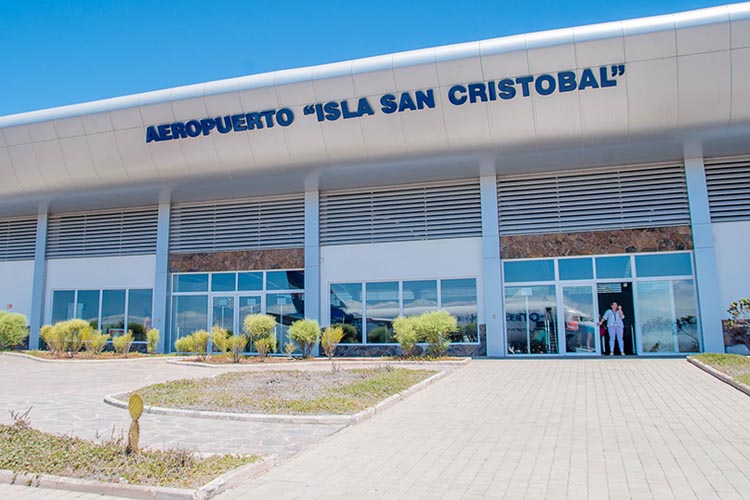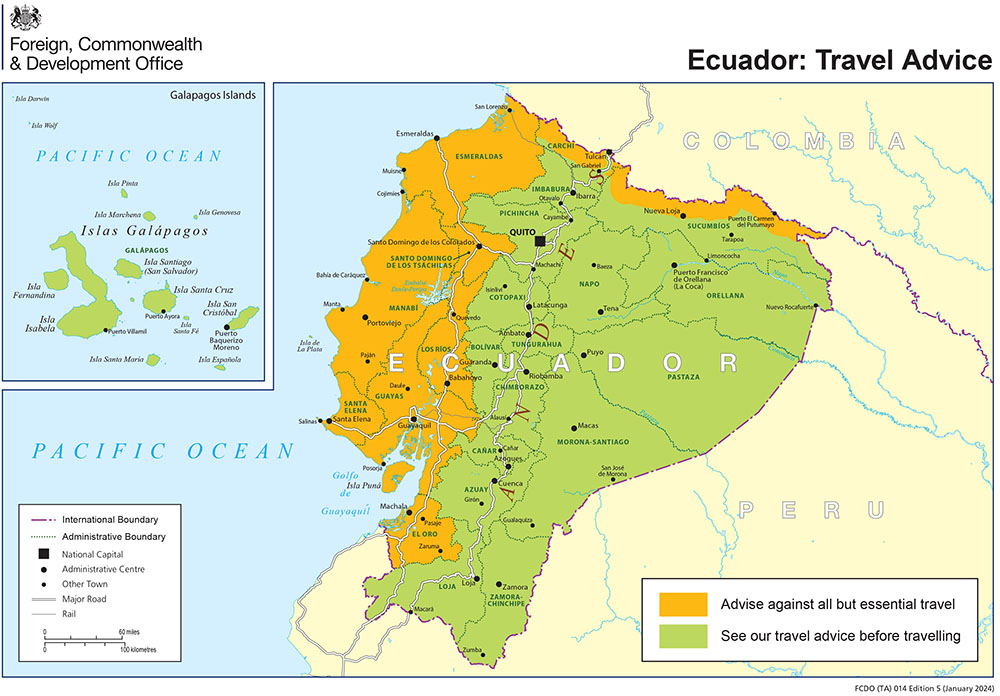
The media is reporting chaos and violence in Ecuador – but what does that mean for divers travelling to the Galápagos Islands?
Ecuador’s president has declared a 60-day national emergency, and news that nation has descended into chaotic violence is plastered all over the media, causing concern amongst tourists who have holidays planned there, particularly liveaboards to the world-famous Galápagos Islands.
But what’s really going on, and is it still safe to travel?
The violence is being perpetrated by Ecuador’s notorious drug cartels, with the most widely reported incident the takeover of a TV station in the city of Guayaquil, the main port of embarkation for flights to the Galápagos.
Clearly, this is of grave concern, but it is also worth pointing out that Guayaquil has – for some years – been designated as one of the most dangerous cities in the world, as one of the foremost ports for international smuggling rings – and it hasn’t stopped hundreds of thousands of divers from passing through the airport on the way to the Galápagos Islands.
As of 12 January, the UK’s Foreign, Commonwealth & Development Office (FCDO) is advising against all but essential travel to the coastal provinces of Ecuador, including Esmeraldas, Manabí, Santa Elena, Guayas, El Oro, Los Ríos and Santo Domingo de los Tsáchilas (see map).
Although the city of Guayaquil is located within this zone (Guayas province); the FCDO travel advice does NOT apply to travellers transiting through Guayaquil airport, including onward or return travel to the Galápagos Islands. This essentially means that British travellers can pass through the airport without invalidating their travel insurance.
The airport in the capital city of Quito is not included in the advisory
The US State Department advises travellers to ‘exercise increased caution in Ecuador due to civil unrest, crime, and kidnapping, however, there is no explicit ban on travelling, with the exception of southern parts of the city of Guayaquil and a handful of other areas which have been designated as off-limits due to crime.

There are no direct flights to Ecuador from the UK, but as of time of writing, Ecuador’s airports are open and all of the major US airlines are still flying, as is KLM, one of the few European carriers to fly to Guayaquil. Travellers can check flight status on the websites of Quito Airport and Guayaquil Airport for confirmation.
In the first two days following the declaration of the state of emergency on 8 January, the Ecuadorean Ministry of Tourism imposed an 11pm to 5am curfew and advised tourists not to leave their accommodation. As of the time of writing (11 January), the requirement to stay indoors has been lifted, however, the curfew remains in place, with the exception of passengers travelling to and from airports who will need to show their passports or ID and their relevant boarding pass or flight booking. Only passengers will be allowed to enter the airport; friends and family who are not travelling will not be allowed to enter the terminals. The FCDO also advises passengers to add extra time for travelling to the airport, as they may be subject to extra security checks.
‘You may see increased military and police presence around key public buildings, airports, bus terminals and on the streets. Some public buildings, shopping centres and key tourist destinations may close without warning,’ continues the FCDO statement. ‘You should monitor local media and stay away from areas involving increased security activity. If an incident occurs near you, follow the instructions of police and other security officials at all times.’
In a separate statement, Niels Peet, Ecuador’s Minister for Tourism, has said that: ‘Ecuador’s roads and public transportation are fully operational, except during curfew hours. We have strategically bolstered security, with increased police and military vigilance to heightened protection. Currently, there is no prohibition on entry, and no incidents of violence have been recorded in the Galápagos Islands, the Amazon Region, or National Parks; the main tourist destinations of Ecuador’.
Additionally, there are plenty of posts on social media from divers who are currently in, or who have just returned from, Ecuador and Galápagos indicating that – apart from the increased security – it is otherwise business as usual.
The situation is fluid and divers with upcoming trips to Ecuador and Galápagos should contact their tour operators for updates. DIVE has reached out to several operators for comment on the current situation, but as of the time of publishing, has not received a reply.


